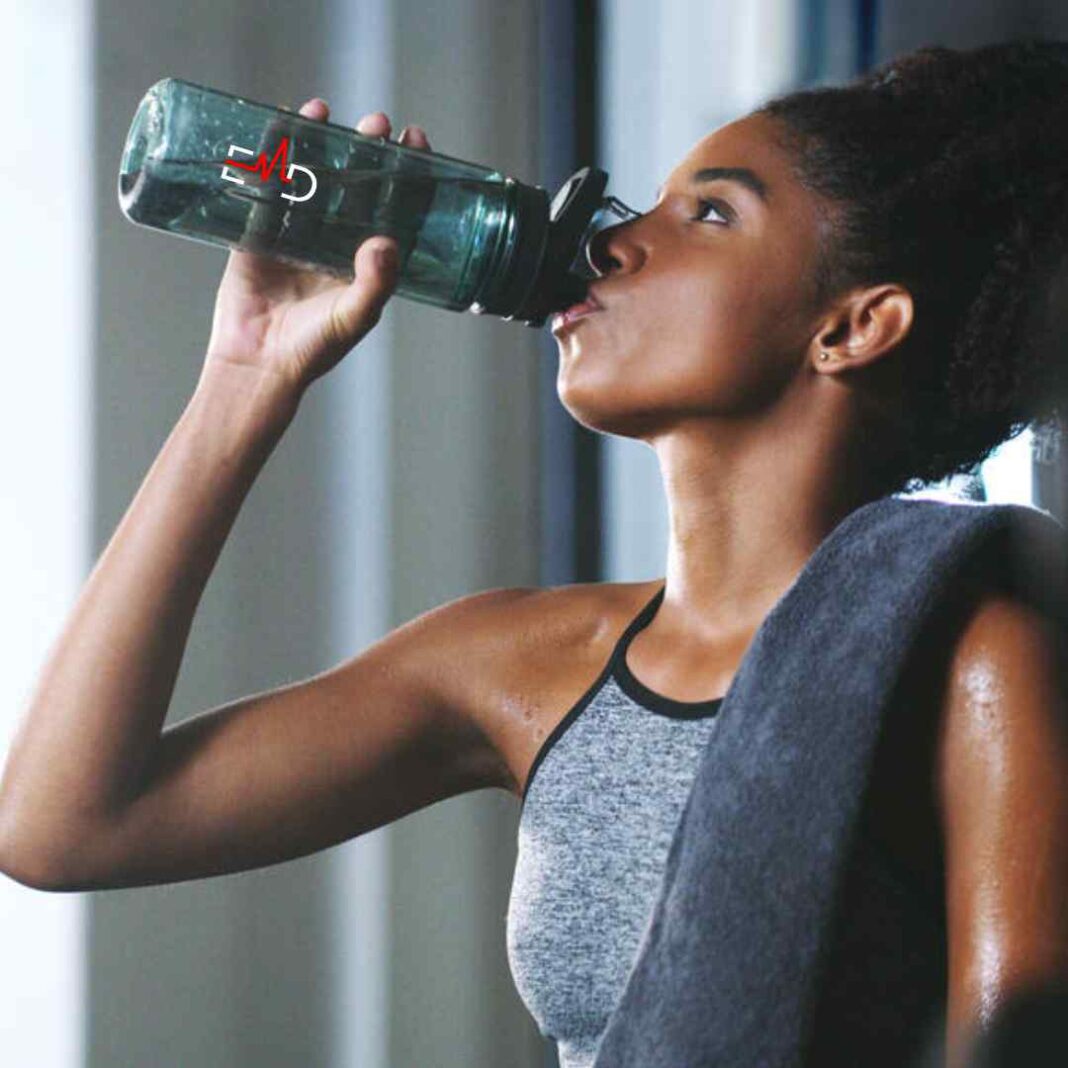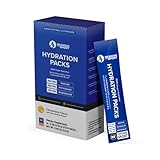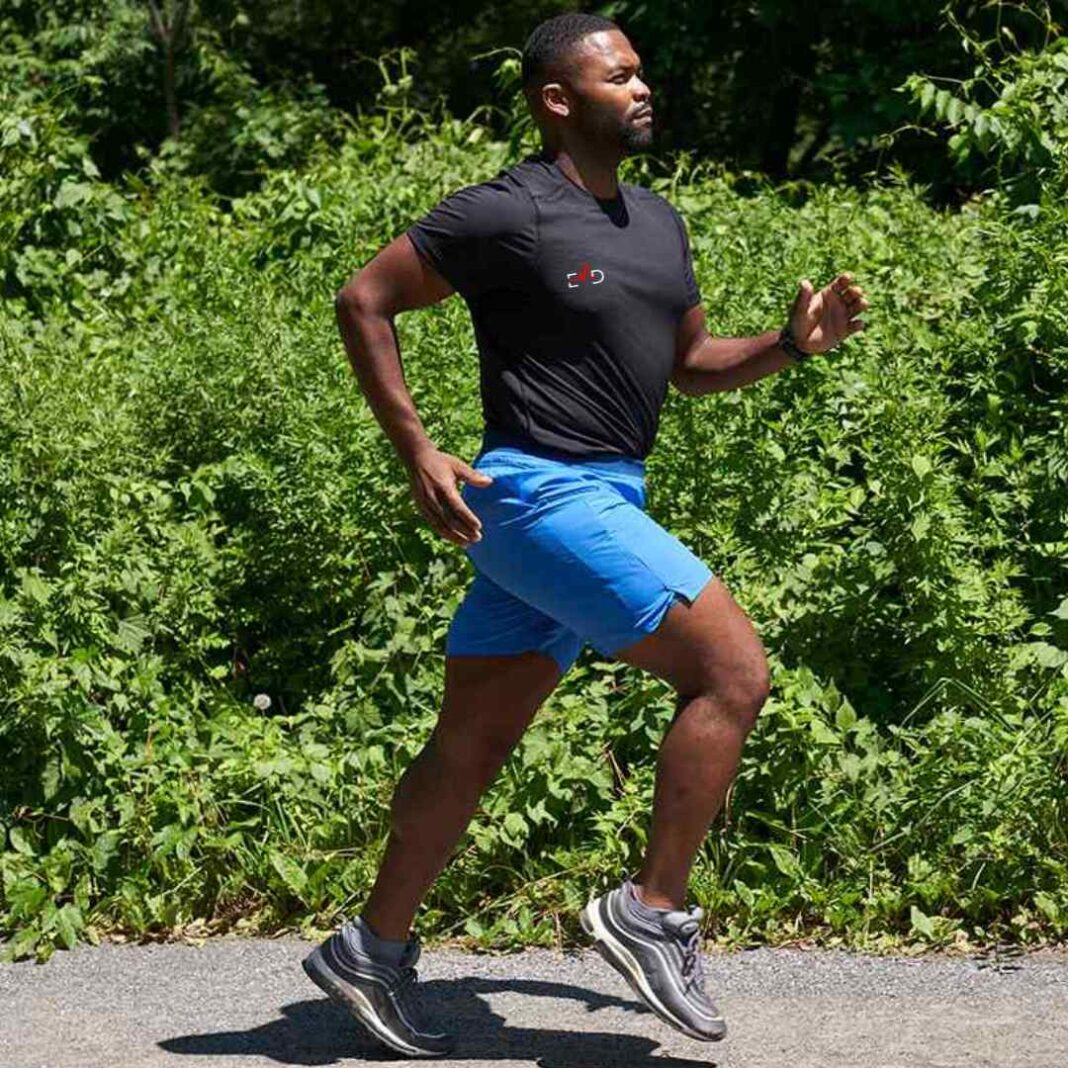Exercise Daily – Regarding athletic performance, hydration is a critical factor that is often overlooked but crucial in maximizing performance. As an athlete, staying hydrated is essential for maintaining peak performance, preventing injuries, and achieving optimal results. Let’s explore the importance of hydration for athletes and strategies to remain adequately hydrated throughout training and competitions.
Hydration
Hydration refers to the process of providing adequate fluids to the body to maintain its optimal functioning. The human body is composed of approximately 60% water, highlighting its essential role in various bodily functions. Water is a vital medium for transporting nutrients, regulating body temperature, lubricating joints, and facilitating chemical reactions. Additionally, sodium, potassium, and magnesium electrolytes are crucial for maintaining proper hydration levels.
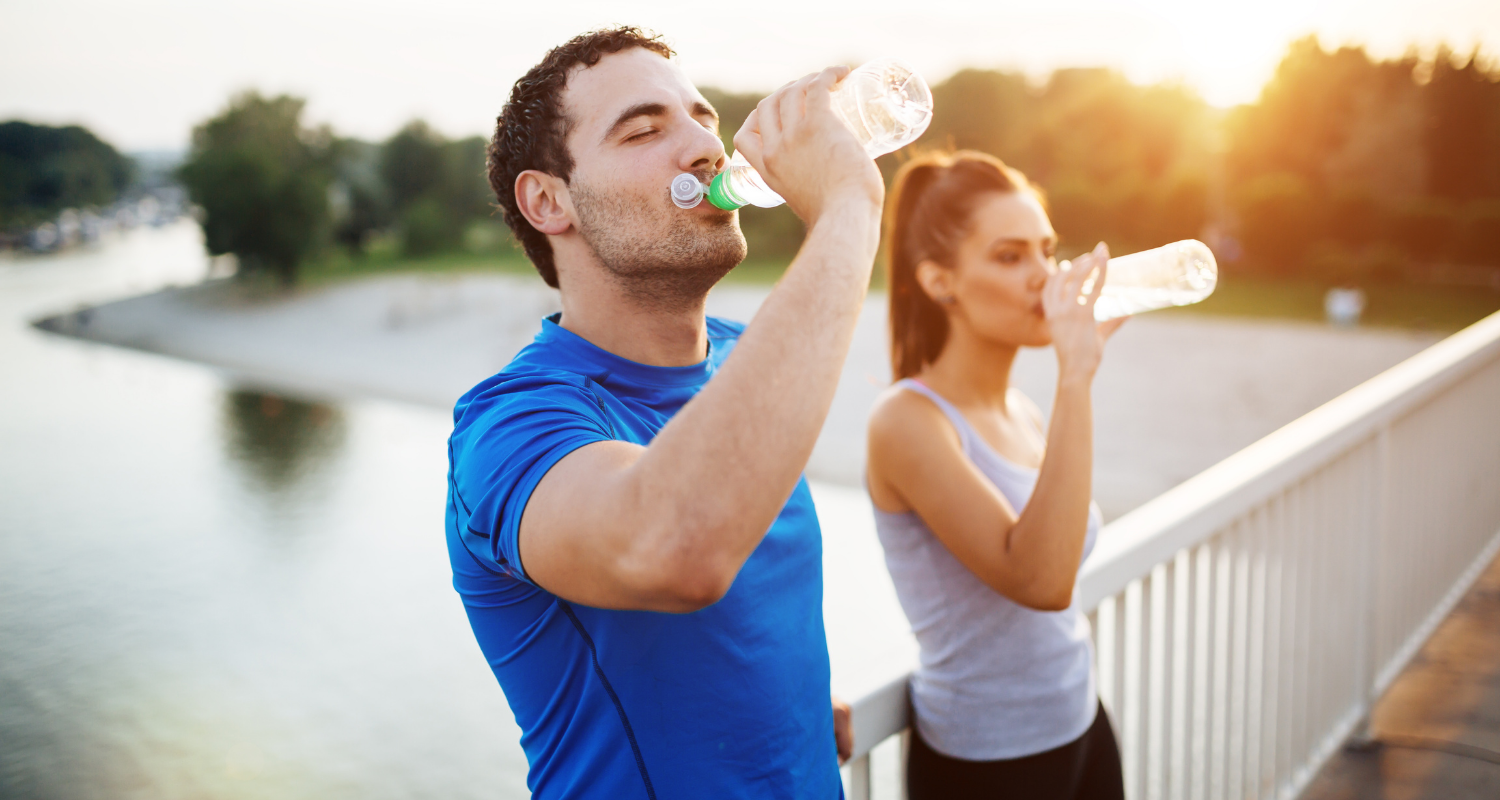
Hydration and Physical Performance
Dehydration can have detrimental effects on an athlete’s physical performance. Even mild dehydration can impair cardiovascular function, decrease blood volume, and hinder the body’s ability to cool itself during endurance activities. This reduces exercise capacity, increases fatigue, and lowers overall performance. In sports that require strength and power, dehydration can negatively impact muscle contraction and power output. Similarly, sports involving speed and agility can be significantly affected by dehydration, leading to decreased reaction time and coordination.
Why Hydration Matters for Athletes
Hydration and Athletic Performance
Proper hydration is directly linked to athletic performance. When dehydrated, your body performs at its best, decreasing endurance, strength, and overall output. Drinking enough fluids is essential for maintaining energy levels, enhancing muscle function, and optimizing performance on the field or court.
Hydration and Body Temperature Regulation
One of the primary functions of hydration in sports is regulating your body temperature. As you exercise, your body produces heat, and sweating is the natural cooling mechanism. Adequate hydration ensures that your body can sweat and dissipate heat effectively, preventing overheating and heat-related illnesses.
Hydration and Injury Prevention
Dehydration increases the risk of injuries among athletes. When dehydrated, your muscles are more prone to cramping and fatigue, decreasing coordination and stability. Staying adequately hydrated can reduce the likelihood of muscle cramps, strains, and other injuries hindering your performance and sidelining you from training.
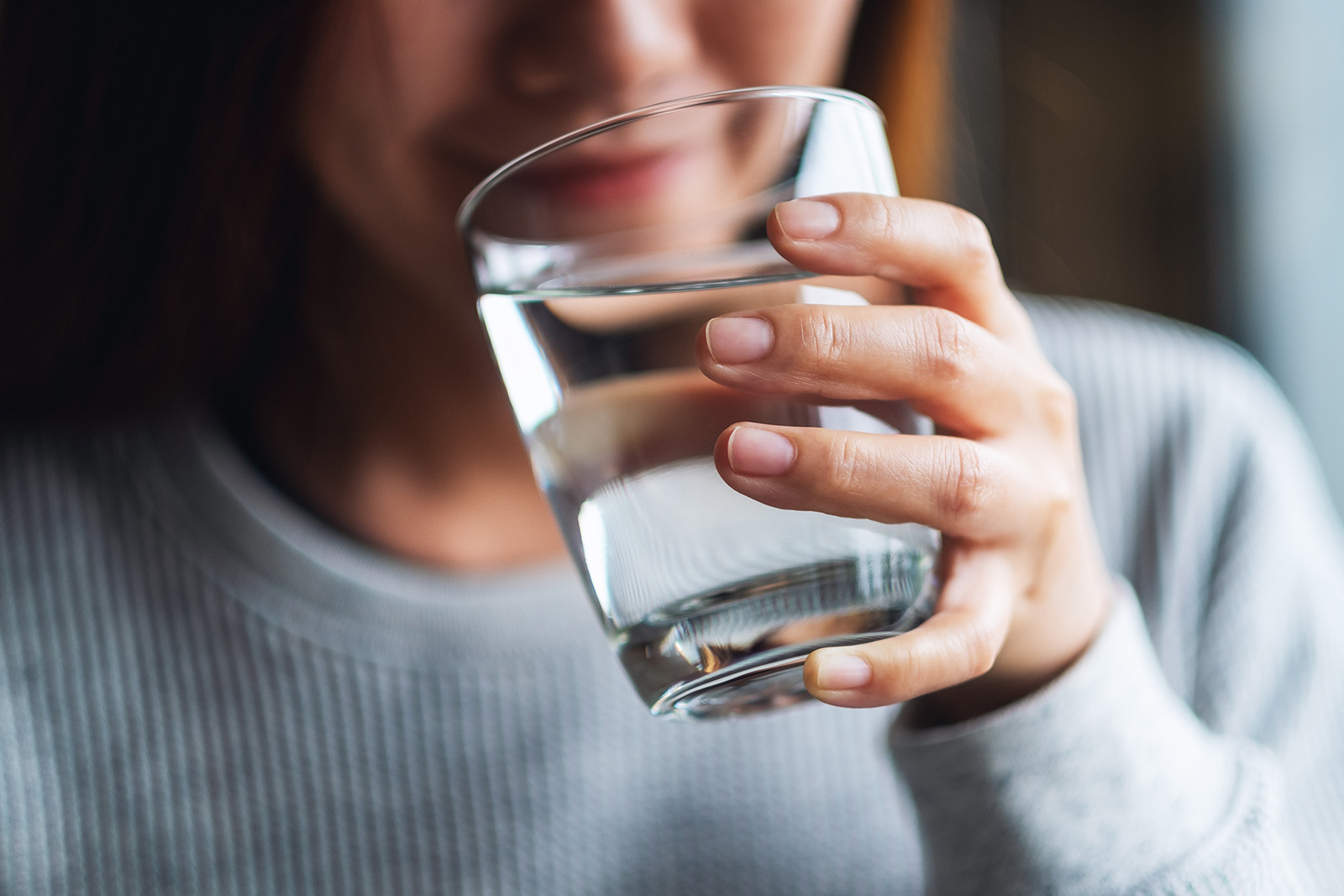
Fluid Needs for Athletes
Hydration Needs for Athletes
The hydration needs of athletes vary depending on several factors, including the intensity and duration of the activity, environmental conditions, and individual sweat rates. Understanding and monitoring your hydration needs is crucial to ensure you are adequately hydrated before, during, and after workouts or competitions.
Sweat Rate and Fluid Replacement
Determining your sweat rate is valuable in estimating your fluid replacement needs. To calculate your sweat rate, weigh yourself before and after a workout, considering the amount of fluid consumed during the exercise. For every pound lost, aim to consume 16-24 ounces of water or a sports drink to replenish the lost fluids.
Water vs. Sports Drinks
When it comes to hydration, water is usually the go-to choice. However, a sports drink containing electrolytes and carbohydrates may be beneficial for intense or prolonged activities lasting longer than an hour. Sports drinks help replenish electrolytes lost through sweat and provide energy to fuel your performance.
Signs of Dehydration
It is crucial to be aware of the signs of dehydration and address them promptly. Common symptoms include dark-colored urine, fatigue, dizziness, headache, muscle cramps, and decreased performance. If you experience any of these signs, it is essential to rehydrate immediately.
Hydration Strategies for Athletes
Pre-Exercise Hydration
Start hydrating well before your training or competition. Aim to drink 16-20 ounces of water or a sports drink 2-3 hours before exercise. Additionally, consume another 8-10 ounces 10-20 minutes before starting to ensure optimal hydration levels.
During Exercise Hydration
Is It Bad to Drink Water While Standing? During exercise, drinking fluids regularly to replace the fluids lost through sweat is crucial. Aim to consume 7-10 ounces of fluid every 10-20 minutes during your workout or competition. A sports drink containing electrolytes and carbohydrates can help replenish the lost nutrients if the activity is intense or prolonged.
Post-Exercise Hydration
After your workout or competition, replenishing fluids is essential for recovery. Aim to drink 16-24 ounces of water or a sports drink for every pound lost during exercise. Proper post-exercise hydration helps restore your body’s fluid balance and aids in muscle recovery.
Monitoring Hydration Status
Monitoring your hydration status is crucial to ensure you are staying adequately hydrated. Pay attention to your urine color – pale yellow or straw-colored. Dark-colored urine indicates dehydration. Additionally, monitoring your body weight before and after exercise can give you insights into your hydration status.
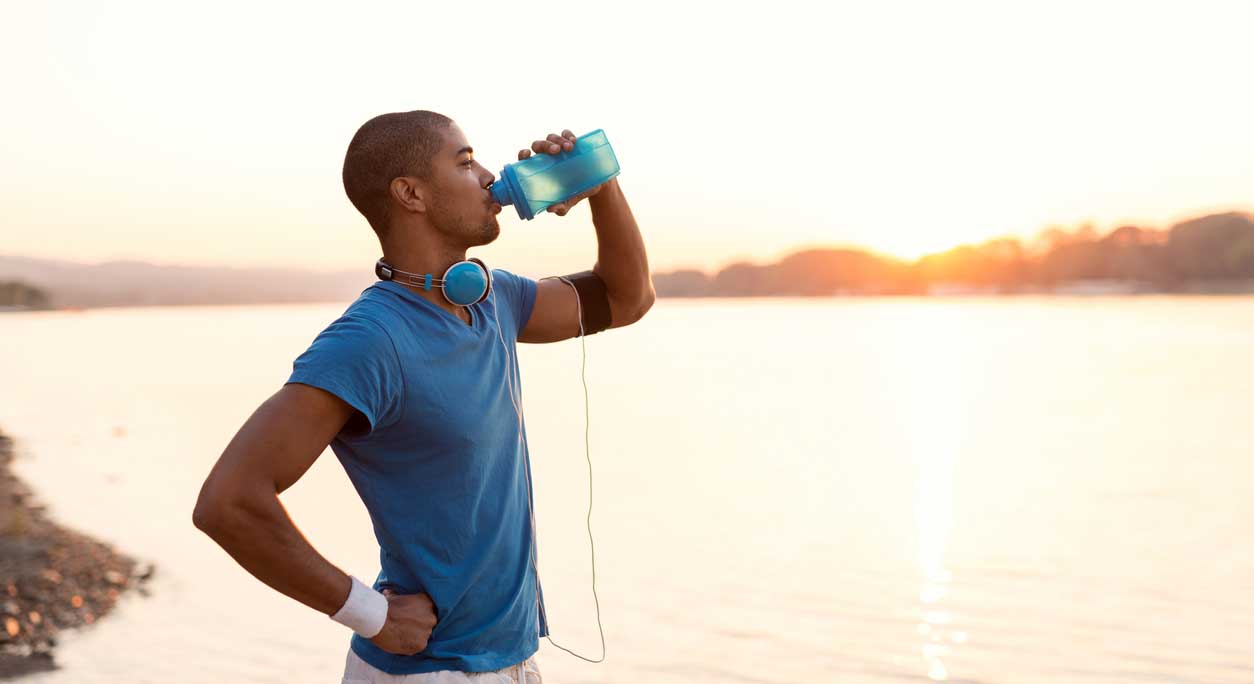
As an Amazon Associate, Exercise Daily earns from qualifying purchases. This post may contain affiliate links. Last updated: February 21, 2026
As an Amazon Associate, Exercise Daily earns from qualifying purchases. This post may contain affiliate links. Last updated: February 21, 2026
Signs and Symptoms of Dehydration
Recognizing the signs and symptoms of dehydration is vital for athletes to take prompt action. Thirst is often a late indicator of dehydration, and relying solely on thirst may lead to inadequate fluid intake. Monitoring urine color and frequency can provide valuable insights into hydration status. Dark urine may indicate dehydration, while light-colored urine typically suggests proper hydration. Fatigue and impaired cognitive function are also common symptoms of dehydration, highlighting the impact on both physical and mental performance.
Monitoring Hydration Status
Athletes can monitor their hydration status through various methods. Regular body weight measurements before and after exercise can help determine fluid losses and guide rehydration strategies. Monitoring urine color and frequency throughout the day provides additional indicators of hydration status. Calculating sweat rate by measuring fluid intake and losses during exercise aids in determining individual hydration needs.
Sports Drinks vs. Water
Regarding hydration, there is often a debate between sports drinks and water. Sports drinks contain electrolytes and carbohydrates, which can benefit athletes engaging in prolonged and intense exercise. These drinks help replenish electrolytes lost through sweat and provide a source of energy. However, water is generally sufficient to maintain hydration for shorter duration and moderate-intensity activities. Choosing the right option depends on the individual’s specific needs and the nature of the activity.
Hydration and Climate Considerations
Environmental conditions play a significant role in an athlete’s hydration needs. The body’s sweating rate increases in hot and humid conditions, leading to higher fluid losses. Athletes must increase their fluid intake and consider electrolyte replacement in such situations. Similarly, cold weather can also lead to dehydration as the perception of thirst is diminished. Athletes must be mindful of their hydration needs and adjust their fluid intake accordingly. Moreover, at higher altitudes, the risk of dehydration is amplified due to increased respiratory water loss and accelerated breathing rates.
Hydration and Recovery
Proper hydration is essential for post-exercise recovery. Replenishing fluids lost during exercise helps restore optimal hydration levels and aids in muscle repair. Maintaining electrolyte balance by consuming foods or beverages containing essential electrolytes post-workout is equally important. This ensures proper muscle function and supports the body’s recovery process.
Hydration Myths Debunked
There are several misconceptions surrounding hydration that need to be debunked. Clear urine does not always indicate perfect hydration, as it can be influenced by factors such as recent fluid intake and certain medications. Coffee and tea, despite being diuretics, can still contribute to overall hydration. While excessive water intake can lead to overhydration, it is essential to strike a balance and meet individual hydration needs without overdoing it.
Optimizing Hydration for Specific Sports
Different sports have varying hydration requirements. Soccer players, for example, need to balance fluid intake to ensure hydration without discomfort during intense matches. Endurance runners must plan their hydration strategy carefully to maintain fluid balance throughout long-distance races. With the high-intensity and stop-and-go nature of the game, basketball players should focus on staying hydrated during breaks and timeouts to sustain optimal performance.
Hydration and Mental Focus
Hydration significantly impacts an athlete’s mental focus and cognitive performance. Even mild dehydration can impair memory, attention, and reaction time. Staying adequately hydrated helps athletes remain mentally sharp, make quick decisions, and maintain optimal cognitive function during sports activities.

Hydration Tips for Athletes
To maintain proper hydration, athletes can follow a few practical tips. Carrying a water bottle ensures easy access to fluids during training or competition. Scheduling regular hydration breaks, even if not feeling thirsty, helps prevent dehydration. Hydration reminders, such as phone alarms or wearable devices, can be helpful for athletes who tend to forget to drink during intense activities.
Hydration Beyond Water
While water is the primary source of hydration, athletes can also obtain fluids through hydrating foods and fruits. Foods with high water content, such as watermelon, cucumber, and oranges, can contribute to overall hydration. Maintaining a balanced nutrition plan that includes foods rich in electrolytes and hydration-supporting nutrients is crucial for optimal performance.
FAQs – Importance of Hydration for Athletes’ Performance
Q: How much water should an athlete drink during exercise?
Athletes should aim to consume 7-10 ounces of fluid every 10-20 minutes during exercise. This can vary depending on the individual’s sweat rate and the intensity and duration of the activity.
Q: Are sports drinks necessary for hydration during exercise?
Sports drinks can benefit intense or prolonged activities lasting longer than an hour. They provide electrolytes and carbohydrates to replenish lost nutrients and provide energy. For shorter workouts, water is usually sufficient.
Q: Can dehydration affect athletic performance?
Yes, dehydration can significantly impair athletic performance. It can decrease endurance, strength, coordination, and overall output. Staying adequately hydrated is essential to maintaining optimal performance and preventing injuries.
Q: How can athletes monitor their hydration status?
Athletes can monitor their hydration status by paying attention to their urine color, aiming for pale yellow or straw-colored urine. Monitoring body weight before and after exercise can also provide insights into hydration levels.
Q: Is it possible to overhydrate?
While it is rare, overhydration can occur, leading to a condition called hyponatremia. Low sodium levels in the blood characterize this condition and can be dangerous. Listening to your body’s thirst cues and drinking fluids in moderation is essential.
Conclusion
Hydration plays a vital role in maximizing athletes’ sports performance. Proper hydration ensures optimal athletic performance, helps regulate body temperature, and reduces the risk of injuries. Athletes should pay attention to their fluid needs, monitor their hydration status, and implement effective hydration strategies before, during, and after exercise. By staying properly hydrated, athletes can optimize their performance and achieve their goals in sports. So, remember to drink up and stay hydrated for peak performance!

